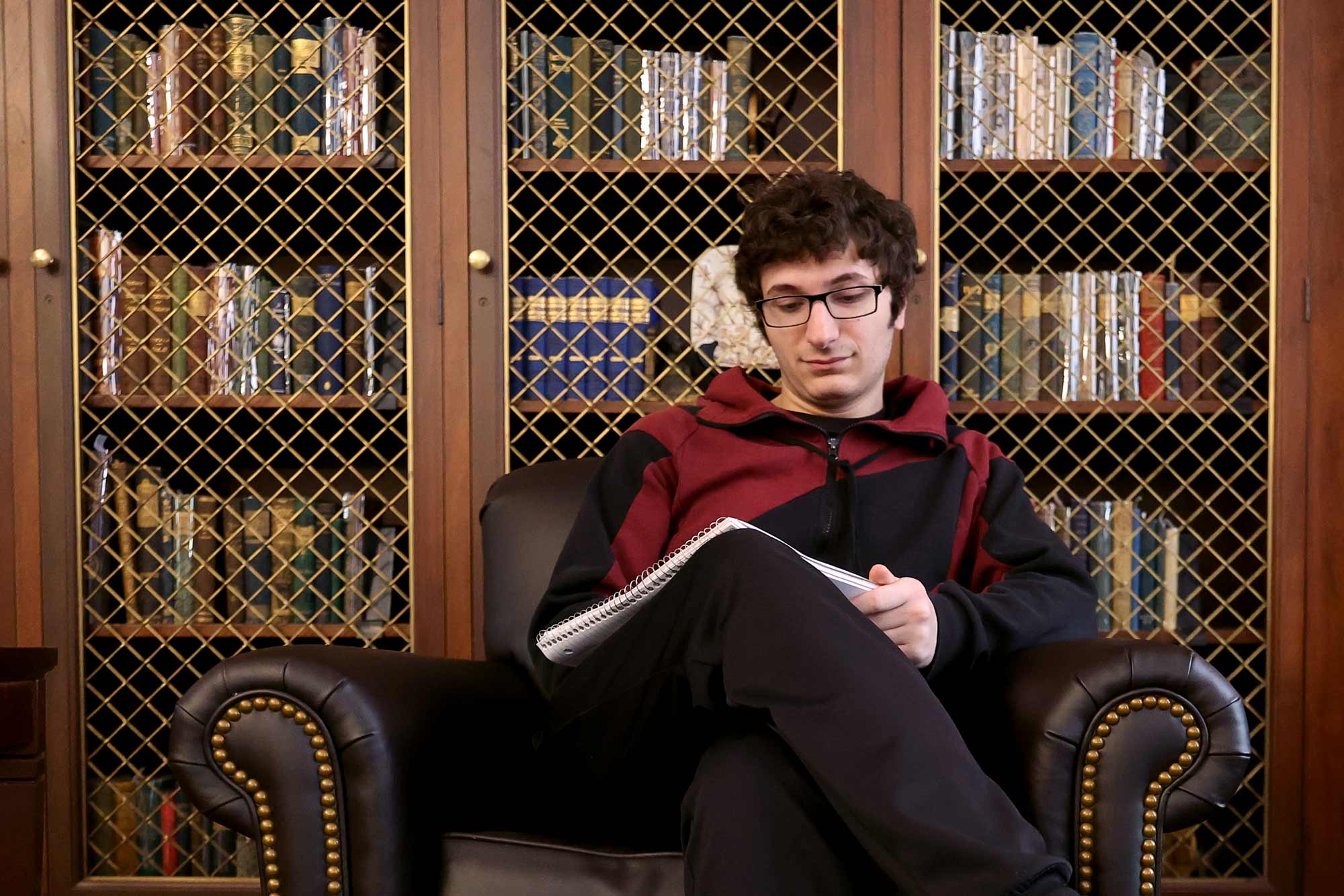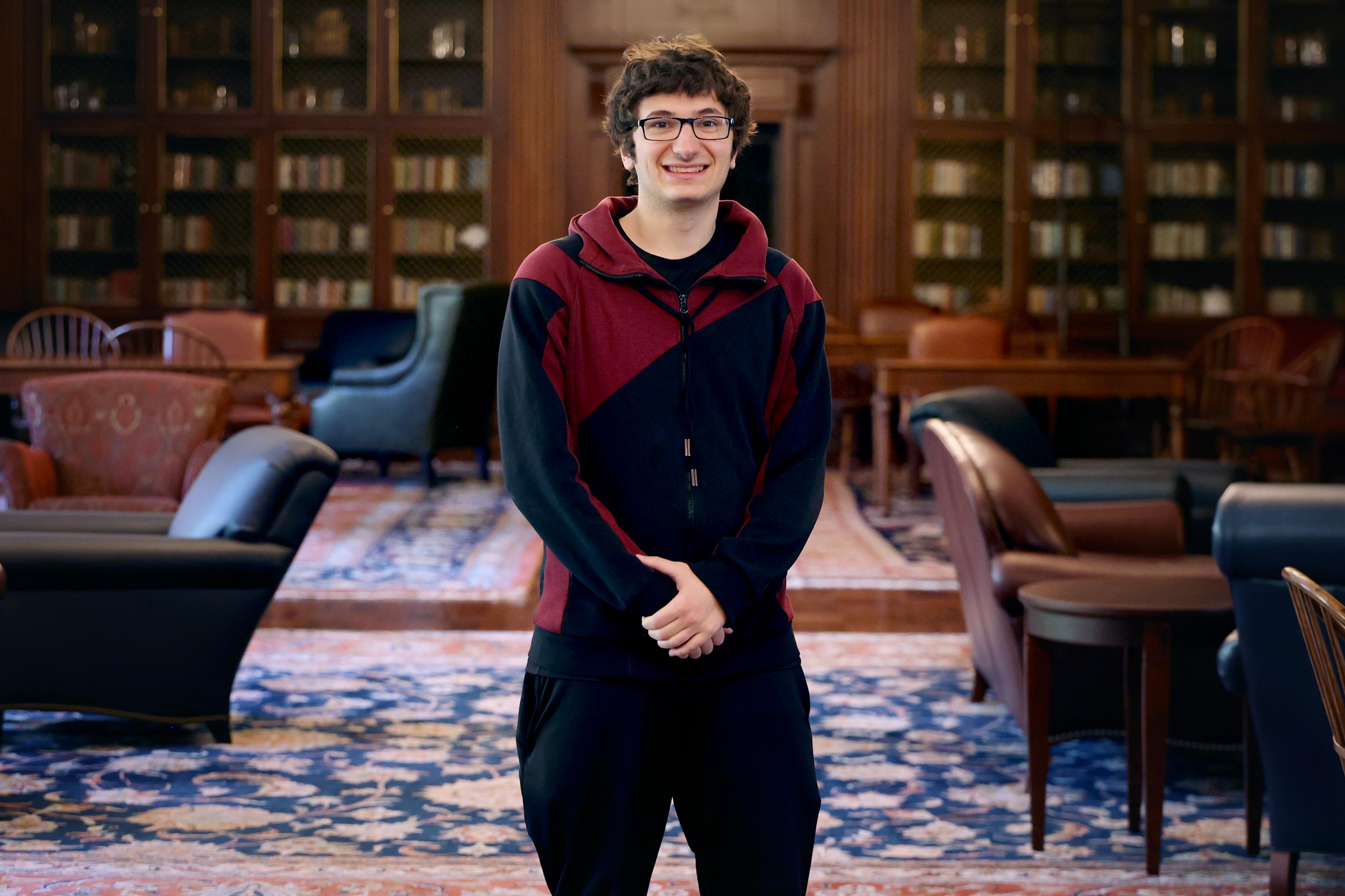When University of Virginia fourth-year student Tyler Ruvolo takes a break, he escapes into a fantasy world of his own making.
Ruvolo, an economics and commerce major from Long Island, New York, sees economic theory and business practicality as a perfect marriage.
“Economics provides the theoretical framework, it provides a baseline in an imagined world,” Ruvolo said. “Then commerce gives the tools to actually make it real. It gives you the ability to communicate your vision.”
Balancing two high-pressure majors, Ruvolo relaxes by diving into a world he is developing in a fantasy novel inspired in part by the works of J.R.R. Tolkien – a world that is not far from his current reality.
“I have an overactive imagination,” Ruvolo said. “I’m the type of nerdy person who wants to know, ‘What was the tax policy? How was this kingdom run? And does it make sense?’ When I suspend disbelief to engage with fiction, I look for different things than maybe other people do.”
Ruvolo is writing the book for himself, a book he would want to read, but his commerce side questions if there is a market for it.

After studying economics and commerce, Tyler Ruvolo uses the knowledge to build his own world in a fantasy novel. (Photo by Matt Riley, University Communications)
“I want the circumstances to make sense,” Ruvolo said. “It’s a work of fiction focused on characters who are subservient to their circumstances. I’m keenly aware of the legal system, the economic frameworks in which they act. It’s not a superhero situation, where they can do whatever they want. They have to act within a political and economic framework. And that, to me, is more representative of what we do as humans.”
Aside from Tolkien, Ruvolo draws his inspiration from R.R. Martin and Soviet-era Russian science fiction.
“A lot of Soviet science fiction is very grounded in reality, because the Soviet government was under the belief that it’s “children’s stuff” and it doesn’t need to be censored,” Ruvolo said. “You get a lot of political criticism, a lot of economic critique out of that. I look for fiction that is more critical of the system it originates from.”
He also draws inspiration from Arthur Miller’s “Death of a Salesman.”
“Willy Loman is a tragic character who gets stuck in the past,” he said. “I think in more current American fiction, there’s kind of a marriage to the American dream, where everything will work out, but I question that. Sometimes things don’t work out.”
Ruvolo, who said he sees himself eventually coming back to academia, is getting a taste of teaching now, working as an undergraduate teaching assistant for economics professor Carter Doyle.










